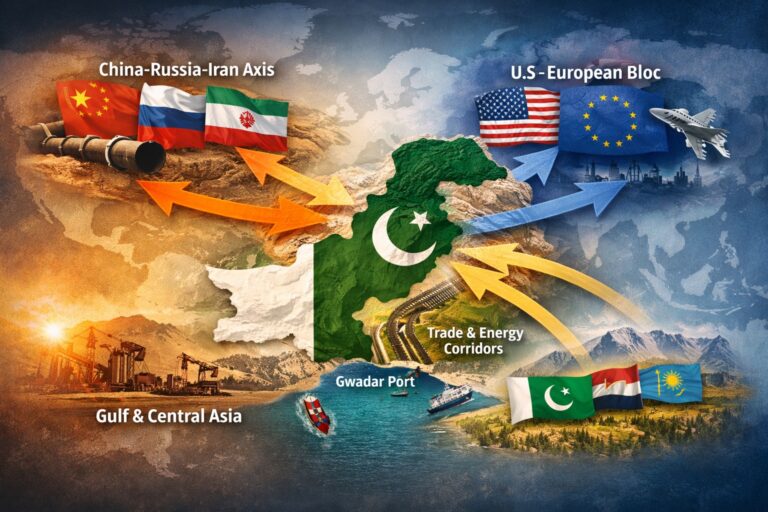On August 13, 2024, Google announced a significant decision to deactivate all Russia-based AdSense accounts, marking a notable escalation in the company’s response to the geopolitical situation surrounding Russia’s invasion of Ukraine. This decision reflects a culmination of various factors, including geopolitical tensions, legal obligations, corporate ethics, and operational challenges. The move not only impacts Russian users and businesses reliant on AdSense for income but also underscores the broader implications of how international conflicts can shape the operations of global technology companies.
Context of the Deactivation
The decision to deactivate Russia-based AdSense accounts did not occur in isolation but follows a series of measures Google has implemented since 2022. These measures were largely a response to Russia’s military actions in Ukraine, which triggered widespread condemnation and led to a cascade of international sanctions aimed at isolating Russia economically and politically.
Google, like many other multinational corporations, found itself in a challenging position. On one hand, it needed to comply with international laws and sanctions, while on the other, it had to navigate the ethical considerations of continuing business operations in a country engaged in an aggressive military campaign. The deactivation of AdSense accounts represents a further tightening of the restrictions that Google had already placed on its services in Russia.
Geopolitical Tensions and International Sanctions
The deactivation of AdSense accounts is deeply intertwined with the geopolitical tensions that have defined global relations since Russia’s invasion of Ukraine in February 2022. The international community, particularly Western nations, responded to Russia’s actions with a range of sanctions designed to weaken its economy and reduce its capacity to sustain military operations.
These sanctions have targeted various sectors, including finance, energy, technology, and trade. For technology companies like Google, the sanctions imposed by the United States and the European Union created a complex landscape in which continuing operations in Russia became increasingly untenable. Adhering to these sanctions meant limiting or entirely ceasing certain business activities, including the disbursement of payments to Russian entities, which is a core function of the AdSense program.
By deactivating AdSense accounts, Google is ensuring that it remains in compliance with these international sanctions. The decision likely reflects an understanding that any continued operation of AdSense in Russia could inadvertently violate sanctions or be seen as a tacit endorsement of the Russian government’s actions. For a company of Google’s global reach and influence, such a perception could have serious reputational and legal consequences.
Corporate Ethics and Responsibility
In addition to legal and geopolitical considerations, Google’s decision to deactivate Russia-based AdSense accounts is also rooted in corporate ethics. Since the onset of the conflict in Ukraine, there has been growing pressure on companies to take a stand against Russia’s aggression by withdrawing or limiting their business activities in the country.
For Google, a company that has often positioned itself as a leader in corporate responsibility and ethical business practices, continuing to allow Russian users and businesses to monetize content through AdSense could be seen as inconsistent with these values. By deactivating these accounts, Google is aligning its business practices with the broader ethical stance taken by many other international companies that have either reduced or entirely ceased their operations in Russia.
This decision can also be seen as part of a broader trend in which companies are increasingly expected to consider the ethical implications of their business activities. In an era where consumers and stakeholders are more aware of and concerned about the social and political impacts of corporate behavior, companies like Google must carefully navigate the balance between profitability and responsibility. The deactivation of AdSense accounts in Russia is a clear example of how companies are making decisions that go beyond immediate financial considerations, instead prioritizing ethical consistency and global responsibility.
Operational Challenges in Russia
Beyond the ethical and legal dimensions, Google’s decision is also influenced by the operational challenges of continuing to do business in Russia. Since the invasion of Ukraine, the business environment in Russia has become increasingly difficult for foreign companies. Sanctions have disrupted financial transactions, made it harder to transfer funds in and out of the country, and created a host of logistical and regulatory challenges.
For Google, operating AdSense in this environment likely became increasingly problematic. The suspension of ad serving in Russia, which preceded the deactivation of AdSense accounts, was already a significant step that reduced the platform’s functionality and revenue-generating potential for Russian users. With the infrastructure for ad serving dismantled, maintaining AdSense accounts in Russia would have required navigating a complex web of financial and regulatory obstacles, with diminishing returns.
Moreover, the legal and regulatory landscape in Russia has become more challenging for foreign companies. The Russian government has introduced laws that impose stricter controls on the operations of foreign tech companies, including data localization requirements and increased scrutiny of content. These regulatory pressures, combined with the financial and logistical difficulties posed by sanctions, likely made it increasingly impractical for Google to continue supporting AdSense accounts in Russia.
Impact on Russian Users and Businesses
The deactivation of Russia-based AdSense accounts will have significant implications for the users and businesses that relied on the platform for income. AdSense has long been a key tool for content creators, website owners, and publishers around the world to monetize their online presence. For many small businesses and individual creators in Russia, AdSense provided a valuable source of revenue, particularly in a country where economic opportunities have become increasingly constrained due to sanctions and the broader economic impact of the conflict.
With the deactivation of these accounts, Russian users and businesses will lose access to one of the most widely used and effective monetization platforms available. This loss is likely to exacerbate the economic difficulties faced by many in Russia, particularly those who have relied on digital platforms as a means of income generation in an increasingly isolated and restricted economy.
For larger businesses and more established content creators, the loss of AdSense may lead to efforts to find alternative monetization strategies, such as shifting to other platforms or exploring direct monetization methods. However, for smaller players, the impact could be more severe, potentially leading to a significant reduction in income or even the closure of some online ventures.
Final Disbursement of Earnings
In its notice, Google assured users that earnings from July 2024 would still be disbursed between August 21-26, 2024, provided the account holder meets the standard payment thresholds and does not have any active payment holds. Additionally, Google stated that within 60 days following the account deactivation, it would attempt to pay out any remaining balance in the account, assuming the account meets the cancellation threshold and there are no payment holds.
This final disbursement of earnings is an important aspect of the deactivation process, as it ensures that Russian users will receive the funds they have legitimately earned through the AdSense platform. However, the process also highlights the broader challenges that come with deactivating accounts in a sanctioned country, including the need to navigate complex financial regulations and ensure compliance with both international sanctions and local laws.
The deactivation of Russia-based AdSense accounts is a significant development in the ongoing saga of how international conflicts impact global business operations. For Google, this decision reflects a careful balancing act between complying with international sanctions, maintaining ethical consistency, and navigating the operational challenges of doing business in a sanctioned and politically isolated country.
For Russian users and businesses, the deactivation of AdSense accounts marks the end of a valuable revenue stream and underscores the broader economic isolation that has resulted from the country’s actions in Ukraine. As the conflict continues, it is likely that we will see further examples of how geopolitical tensions shape the decisions and operations of global technology companies, with far-reaching implications for users around the world.
This decision by Google is a reminder of the interconnected nature of the modern global economy, where the actions of a government in one country can have ripple effects that impact businesses and individuals in far-reaching and often unpredictable ways. As companies continue to navigate these challenges, the balance between profitability, responsibility, and compliance will remain a central theme in the evolving landscape of global business.


